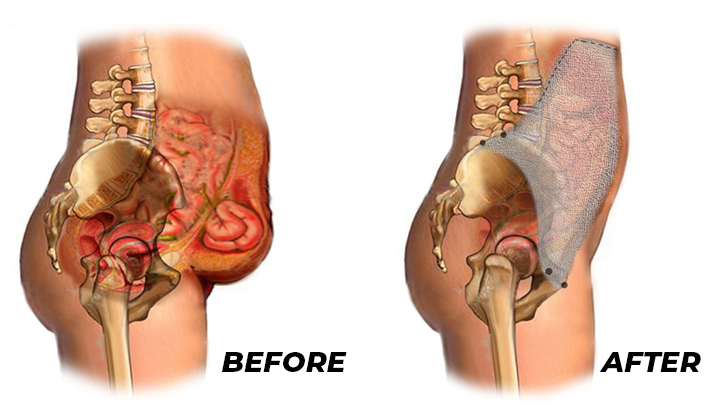Blog

WHAT SHOULD I EXPECT BEFORE, DURING AND AFTER HERNIA SURGERY ?
Hernia surgery requires thorough physical examination, investigations and proper post operative care to have successful outcomes.Below are a few points of what one can expect while planning to undergo hernia surgery.
Before the surgery
- Your surgeon will do a complete physical examination and confirm the type of hernia present so treatment options can be discussed.
- In males, a per rectal examination will be done. This is to examine the rectum if in case there is a history of constipation. In middle-aged and elderly males, enlargement of the prostate gland has to be ruled out. Enlargement of the prostate gland can cause difficulty in passing urine. This if present, needs treatment by a Urology specialist doctor before going ahead for surgery.
- Your surgeon will check the status of your lungs and advise appropriate specialist referral if required to ensure that you don’t develop a cough after the surgery has been performed.
- A complete review of long-term medications such as tablets for high blood pressure, diabetes, heart disease etc.
- Prior to the night of the surgery, one will be advised to not eat or drink from a particular time.
- Body hair will be removed using clippers.
- Treatment protocol, risks and complications, probable post-operative course and length of stay will be discussed by your surgeon
- Signing of consent forms for surgery and anesthesia.
During the surgery
- Most surgeons prefer to place a urinary catheter to ensure the patient does not strain after surgery while passing urine
- A nurse will place an intravenous cannula in the arm to give IV fluids and drugs.
- Based on the type of surgery being performed, spinal or general anesthesia will be given. In case of laparoscopic or robotic hernia surgery, the patient will be fully asleep. Spinal anaesthesia, where there is only loss of sensation, is used for open surgery only.
- In Laparoscopic surgery, small holes called ports are made in the abdominal wall and surgery is carried out using specialized instruments. The small incisions have the advantage of causing lesser pain to the patient. This helps in faster recovery and earlier return to normal daily activity
- After the surgery, the patient is taken to a post-operative care room, where they are continuously monitored and then shifted to the room when deemed safe.
- Depending on the surgery, the patient will be given IV fluids, antibiotics and pain medication
After the surgery
- Dressings will be done by the surgeon based on the type of surgery done
- Please confirm if you can take bath or let water come in contact with the dressing.
- You will be advised on how to move and get up from the bed and what activities can be performed by you.
- Tablets will be prescribed for pain and prevention of infection as per the discretion of the doctor
- After hernia surgery, sitting on the floor, lifting heavy weights, straining on coughing, passing stools or voiding urine must be avoided
- Unless contraindicated, a diet rich in fiber, protein and plenty of liquids can be consumed to prevent constipation and aid in healing
- Schedule your review as per the doctor’s advice regarding dressing and removal of stapler.

